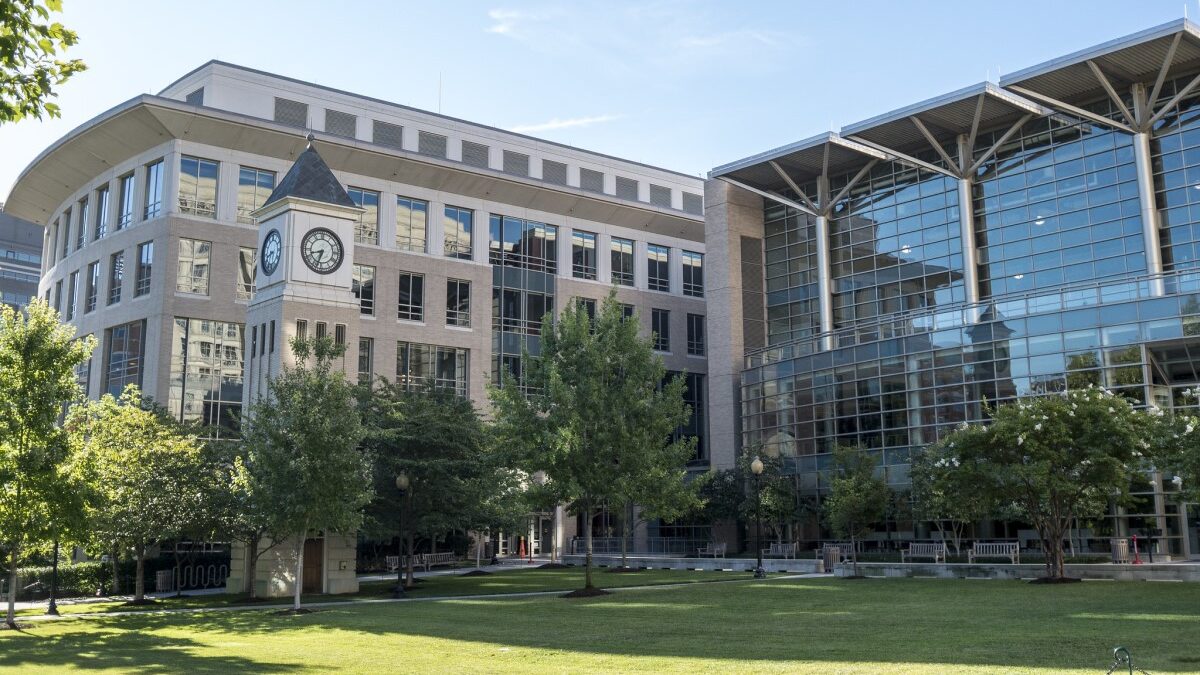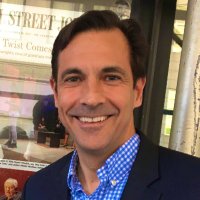Constitutional law scholar Ilya Shapiro is on administrative leave from Georgetown Law School amid being investigated for criticizing President Biden’s choice to select a Supreme Court nominee on the bases of sex and race. His suspension is outrageously hypocritical in light of many law professors’ ugly, racist attacks heaped upon conservative judges, especially Justice Clarence Thomas, that received little or no criticism in the legal academic community.
Shapiro is being investigated for tweeting: “Objectively best pick for Biden is Sri Srinivasan, who is solid prog & v smart. . . . But alas doesn’t fit into the latest intersectionality hierarchy so we’ll get lesser black woman.” Yes, Shapiro used the inartful phrase “lesser black woman” because President Biden announced he would only consider black women candidates to be his nominee. In the context of his tweet, however, Ilya was clearly not saying that a black woman nominee could not be an excellent choice.
In contrast to Shapiro’s opposition to racism, many law professors have engaged in openly racist attacks on justices, with little to no professional repercussions. Such criticism of Thomas is an especially clear example of this double standard in the profession and at Georgetown.
Many law professors, including at Georgetown Law, have been unapologetically vicious in their racism towards Thomas. According to a review by Georgetown Law Professor Charles Abernathy of the book, “We Won’t Go Back: Making The Case For Affirmative Action” (1997) by then Georgetown Law professors Charles R. Lawrence III & Mari J. Matsuda:
[Justice Thomas] is said to be “a ‘handkerchief head’ and ‘a chicken-and-biscuit-eating Uncle Tom.’ While these slurs against Justice Clarence Thomas are quoted as the words of others, Lawrence reports them — repeatedly — with the same mixture of glee and anger common in epithet calling. Finally, in the author’s own words, Justice Thomas is lashed for the ‘extremity of his betrayal’ of blacks. [footnotes omitted]
That is what racism actually looks like, in full bloom. Proper outrage over such sentiments ought to far exceed the faux uproar over Ilya’s opposition to racial and sexual preferences in hiring. Yet I am unaware of Lawrence being publicly chastised or put on administrative leave by the dean of Georgetown Law School, or of anyone at Georgetown, other than Abernathy, saying a word of public criticism about his statements.
The phenomenal Bari Weiss uncovered a real gem of hateful speech from Georgetown Law Professor Carol Christine Fair, who tweeted during the Brett Kavanaugh Supreme Court confirmation: “Look at this chorus of entitled white men justifying a serial rapist’s arrogated entitlement. All of them deserve miserable deaths while feminists laugh as they take their last gasps. Bonus: we castrate their corpses and feed them to swine? Yes.”
In stark contrast to its treatment of Shapiro regarding his poorly worded tweet, for which he has already apologized, Georgetown Law School came to Fair’s defense, saying: “Our policy does not prohibit speech based on the person presenting ideas or the content of those ideas even when those ideas may be difficult, controversial or objectionable.” To her credit, Fair would have Georgetown give Shapiro the same broad latitude to speak his mind that she received for her far more incendiary comments.
Beyond the selectively sensitive faculty at Georgetown, many others in the legal academy have gleefully, and without apparent consequence, expressed racist contempt for Thomas. Since working on Justice Thomas’s confirmation as a lawyer in the White House counsel’s office, I have been appalled by the frequency and vehemence of the ad hominem, racist attacks on him.
A few others, such as Professor Tomiko Brown-Nagin, have laudably objected to such attacks on Justice Thomas, as reflected in this article on a speech she gave in 2005 at the University of Virginia:
Brown-Nagin said she disagrees with Thomas on many issues. . . . Nevertheless, she chose to take a contrarian position because much of the rhetoric about Thomas’s jurisprudence is exaggerated and intellectually dishonest. Thomas has been called ‘someone who looks black, but thinks white,’ she said, and an ‘Uncle Tom’ who ‘obeys’ Justice Antonin Scalia. A recent article by a legal academic called Thomas even worse — he was a ‘Sambo’ for cultivating good relations with whites for his own advantage and to the disadvantage of other blacks.
‘I think the rhetoric is inhumane…It’s dehumanizing to Thomas as well as to all of us,’ Brown-Nagin said. ‘In my view, it’s well beyond what anyone needs to do to make their point.’
Yet, apart from a few criticisms from within the legal academy, I do not recall a single law professor being rebuked by his faculty or dean, suspended, or fired for such intemperate and baseless comments. I do not think they should be, any more than Shapiro should be punished. The remedy for speech you dislike, or even despise, is more speech, not economic intimidation or cancellation.
Perhaps the reason Ilya’s statement is being treated differently than the attacks on Justice Thomas is because legal academics frequently agree that race should be a factor in both public and private decision making and even in assigning the views people are expected to hold. But much of the public, across all races, thinks otherwise. That is precisely why it is important to have a robust debate over President Biden’s (or any other president’s) reliance on race and sex as a selection criteria.
For example, polling on affirmative action in college admissions indicates that a significant majority of black Americans agree with Thomas’s and Ilya’s opposition to racial preferences and to racializing all aspects of American life. According to a Pew Research poll in 2019, 62 percent of blacks opposed having race be a factor at all in college admission criteria.
On other issues, such as voter ID laws and defund the police, the liberal and academic elite clearly do not represent the views of the majority of black Americans. A 2021 poll shows that 69 percent of blacks support voter ID requirements to vote. A 2021 poll showed only 28 percent of black Americans supported the defund the police movement.
But holding the “wrong” views on these issues will get you branded a racist on college and law school campuses. That the legal academy is so out of step with the sentiment of ordinary Americans even across racial boundaries makes it all the clearer that scholars like Ilya should have a place at Georgetown to challenge the received wisdom in academia on these questions without being accused of, let alone disciplined or fired for, “racial insensitivity.”
Shapiro’s tweet did not disparage anyone, including any potential Supreme Court nominee, on account of his or her race or sex. It would be the height of employing a double standard if Georgetown Law School Dean William Treanor took any additional adverse action against Shapiro for this tweet when many law professors continue to smear Justice Thomas as unqualified or a traitor to his race and are celebrated in the academic community.
Shapiro is a good man, an excellent scholar, and has a much-needed alternative point of view to contribute to the Georgetown Law community. Let’s see if Treanor has the integrity to live up to his professed “respect for diversity” and keep Shapiro.









